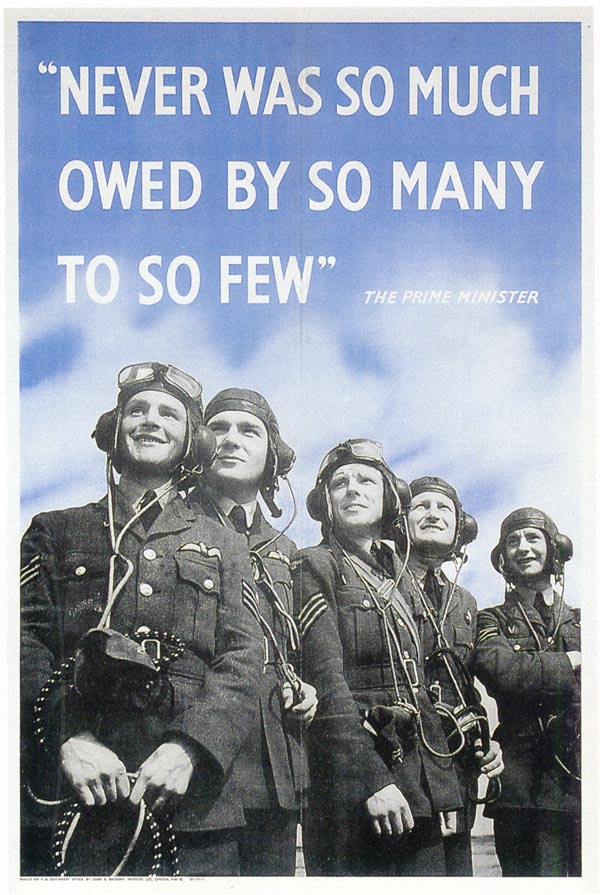Memories of 'The Few'
‘The Few’ was the nickname given to members of RAF airmen, and was taken from Winston Churchill’s speech during World War Two:
"Never, in the field of human conflict, was so much owed by so many to so few."
Many of ‘The Few’ were in their late teens or early twenties when they took part in the Battle of Britain, and those who survived have provided historians with many vivid memories of the events that took place between July and October 1940.
Richard Jones, for example, was a Flight Lieutenant during the Battle of Britain who was called up at the age of 20. Interviewed before he passed away in March 2012, Richard recalled that many of the men he knew did not survive the battle:
“We were all volunteers. We knew what we were up against and how important it was. We wanted to get on with it. Our life expectancy was only seven to eight days but we learnt not to show too much fear. There was only one thing to do – we had to beat the Germans.”

In a ceremony held at Capel-le-Ferne in July 2010 to commemorate the 70th anniversary of the battle, Air Chief Marshal Sir Michael Graydon stated:
“The Few are national treasures.”
Prince Michael of Kent, patron of the Battle of Britain Memorial Trust, stated at the same ceremony:
“In the summer of 1940 the whole population of Great Britain and Europe was in your hands. We salute you.”
Not many of ‘The Few’ knew about the radar technology - part of the Fighter Command's Dowding System - housed in the Fighter Command main hub known as Bentley Priory. However, the impact it had on the efficiency of the pilots is credited for boosting their success. Commenting on the radar technology, former Fighter Command pilots said:
“We as pilots knew nothing about it. We were told they were something electronic but we really did not know what effect they would have on us until the battle started.” (Billy Drake, 213 Squadron, Flight Lieutenant)
“He (Dowding) understood the rule of radar. He recognised here was the weapon to defeat the Luftwaffe. Without radar we would have been so outnumbered we’d have had no chance whatsoever.” (Edward Fennessy, 60 Group, Squadron Leader)
Pilots also held Keith Park - operational commander for the RAF during the Battle of Britain - in the highest of regards.
“Keith Park was right out of the top drawer. He led from the front. He was a very fine man.” (Geoffrey Wellum, 92 Squadron, Pilot Officer)
“He was an approachable man. A fighting man’s man.” (Tom Neil, 249 Squadron, Pilot Officer)
Many of the pilots who were part of Fighter Command have also provided historians with details of the simple procedures they used to avoid being shot down:
“A pilot always wants to get above and behind his enemy. (If this happened to you) the only thing was to take evasive action with what was known as a ‘split arse turn’. It meant climbing steeply and turning to one side or the other. You didn’t really have time to be scared. Your main focus was on ensuring survival; there’s no point in being a dead hero.” (Jimmy Corbin, Flight Lieutenant)
However, even with these techniques mastered, many of the Fighter Commanders suffered severe and even fatal attacks at the hands of the Germans, leaving many both physically and emotionally battered:
“Psychiatrists and psychologists were in short supply and counselling unknown, or we might have been grounded due to combat stress. Instead a few pints in the pub did the trick.” (Bob Foster, Pilot Officer)
'You know somebody's going to be killed - you just hope it's not going to be you... You regretted losing a friend, but there was a war going on, and you just had to put it out of your mind.' (Anon)
MLA Citation/Reference
"Memories of 'The Few'". HistoryLearning.com. 2026. Web.
